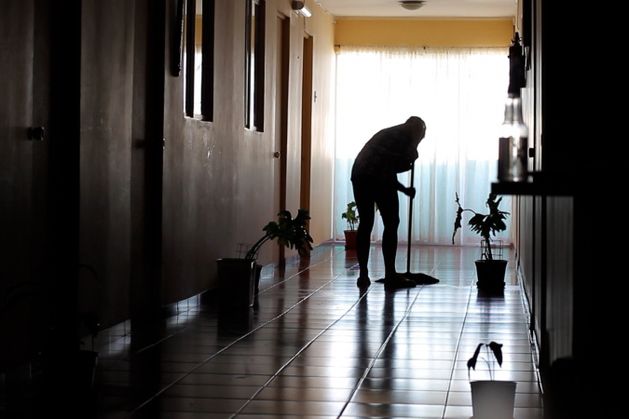
A new ESRI study reveals that minimum-wage roles accounted for around 7pc of online vacancies in 2023. This jumped to more than 15pc after the minimum wage rose from €11.30 to €12.70 last year.
This indicates that fewer employers were prepared to pay above the minimum legally-binding rate when hiring staff.
The report comes just weeks after the Government announced a significant delay of three years to plans to replace the national minimum wage with a new living wage.
Enterprise Minister Peter Burke has revealed that a living wage will not be rolled out until 2029, instead of next year, due to business costs.
Dr Paul Redmond, associate research professor at the ESRI and co-author of the report, said the minimum wage increase last year was the largest to date.
He said more workers were affected when there was a hike of this magnitude, because pay for all workers earning from €11.30 must increase to €12.70.
“With a large minimum wage increase, it may become more difficult for employers to pay low-paid workers above the new minimum wage,” he said. “It’s important to note, however, that even though there are more people in minimum-wage jobs, the wages of these people are higher.”
The minimum wage rate rose to €13.50 an hour in January.
The report, which was funded by the Low Pay Commission, also reveals big differences in the demand for minimum-wage workers in different counties.
“Between 2021 and 2024, the share of online vacancies that posted minimum-wage salaries ranged from 7pc of vacancies in Dublin to over 22pc of vacancies in Donegal,” it said.
“This has implications for minimum-wage policy, highlighting distinct spatial differences in labour market composition across counties.”
The two counties with the highest rate of advertised minimum-wage jobs were Donegal at 22pc and Sligo at 19pc.
Each county experienced a sharp increase in the incidence of minimum-wage vacancies last year following the large increase in the pay rate.
In Dublin, for example, the incidence of advertised minimum-wage jobs from 2021 to 2023 was between 4pc and 6pc, but this increased to 12pc last year.
The top-three minimum-wage jobs in Ireland are kitchen helpers, shop sales assistants and bartenders.
According to the report, there is “county-level variation” in terms of the jobs on offer.
For example, it said the role of client information worker ranks second among minimum-wage occupations in Donegal.
“Those working in this role are typically receptionists, call-centre workers or customer service representative jobs,” it said.
“Building and housekeeping supervisor is ranked either first or second among minimum-wage jobs in Kilkenny, Leitrim, Longford and Tipperary.”
Jobs in this category are typically cleaners and facility maintenance workers, it said.
The top 20 minimum-wage employers were found typically to operate catering, retail or hospitality services.
Employers hired catering staff, service staff, sales assistants, cleaners, packaging assistants or administrative staff at the minimum wage.
Other top minimum-wage employers included a residential care service provider and an IT firm.
The type of minimum-wage jobs advertised by the residential care provider included receptionist, housekeeping staff, catering staff and healthcare assistant. The IT firm recruited customer service representatives at the minimum wage.
The top three minimum-wage employers in Ireland advertised for 620 minimum-wage workers during the period studied between 2018 and last year.
The top three most required skills in vacancies for minimum-wage jobs are customer service, communication and sales, according to the report.
The report, “A study of minimum wage employment in Ireland using online job vacancy data”, found that minimum-wage jobs are more likely to be advertised as part-time positions.
It found that minimum-wage positions are no more difficult to fill than higher-paid jobs. The report noted that there was strong economic growth and low unemployment during the years examined, and the incidence and types of minimum-wage jobs might be different if the same analysis was carried out during a recession.
Chair of the Low Pay Commission, Ultan Courtney, said the research will improve its discussions with stakeholders and “enhance our own deliberations as we move towards our recommendations to the Government for 2026”.
#Proportion #minimumwage #jobs #advertised #employers #doubled #year






